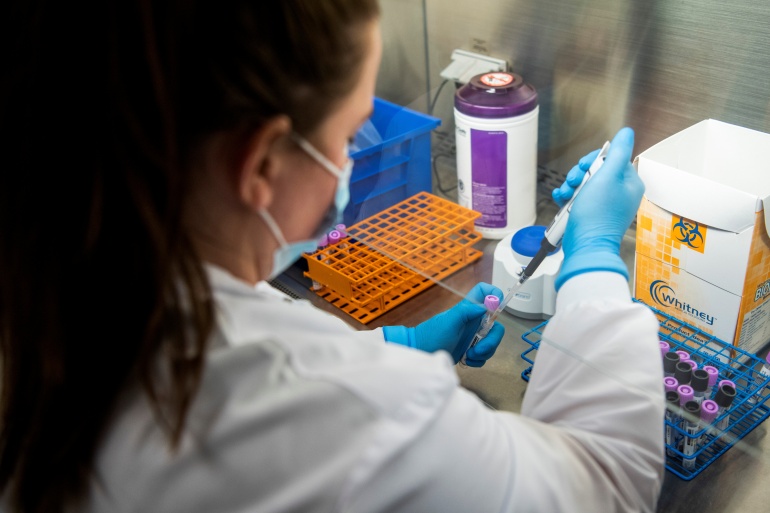There is a lower risk of hospitalization for people with the omicron coronavirus variant compared to Delta, but the higher transmissibility of omicron could still lead to significant numbers needing hospital treatment, the UK government said.
Analysis of preliminary data by the UK Health Security Agency (UKHSA) showed an individual with omicron was estimated to be between 31 percent and 45 percent less likely to attend hospital compared to someone with Delta, and 50 to 70 percent less likely to be admitted.
UKHSA Chief Executive Jenny Harries said on Thursday it was “an encouraging early signal that people who contract the omicron variant may be at a relatively lower risk of hospitalization than those who contract other variants.”
“However, it should be noted both that this is early data and more research is required to confirm these findings,” she said.
Scientists caution that any reductions in severity need to be weighed against the fact that Omicron spreads much faster than Delta and is more able to evade vaccines.
The agency’s research said the protection a booster shot of vaccine gives against symptomatic Omicron infection appears to wane after about 10 weeks, though protection against hospitalization and severe disease is likely to hold up for longer.
The analysis follows two studies, from Imperial College London and Scottish researchers, that found patients with Omicron were between 20 percent and 68 percent less likely to require hospital treatment than those with Delta.
Analysis of preliminary data by the UK Health Security Agency (UKHSA) showed an individual with omicron was estimated to be between 31 percent and 45 percent less likely to attend hospital compared to someone with Delta, and 50 to 70 percent less likely to be admitted.
UKHSA Chief Executive Jenny Harries said on Thursday it was “an encouraging early signal that people who contract the omicron variant may be at a relatively lower risk of hospitalization than those who contract other variants.”
“However, it should be noted both that this is early data and more research is required to confirm these findings,” she said.
Scientists caution that any reductions in severity need to be weighed against the fact that Omicron spreads much faster than Delta and is more able to evade vaccines.
The agency’s research said the protection a booster shot of vaccine gives against symptomatic Omicron infection appears to wane after about 10 weeks, though protection against hospitalization and severe disease is likely to hold up for longer.
The analysis follows two studies, from Imperial College London and Scottish researchers, that found patients with Omicron were between 20 percent and 68 percent less likely to require hospital treatment than those with Delta.


















